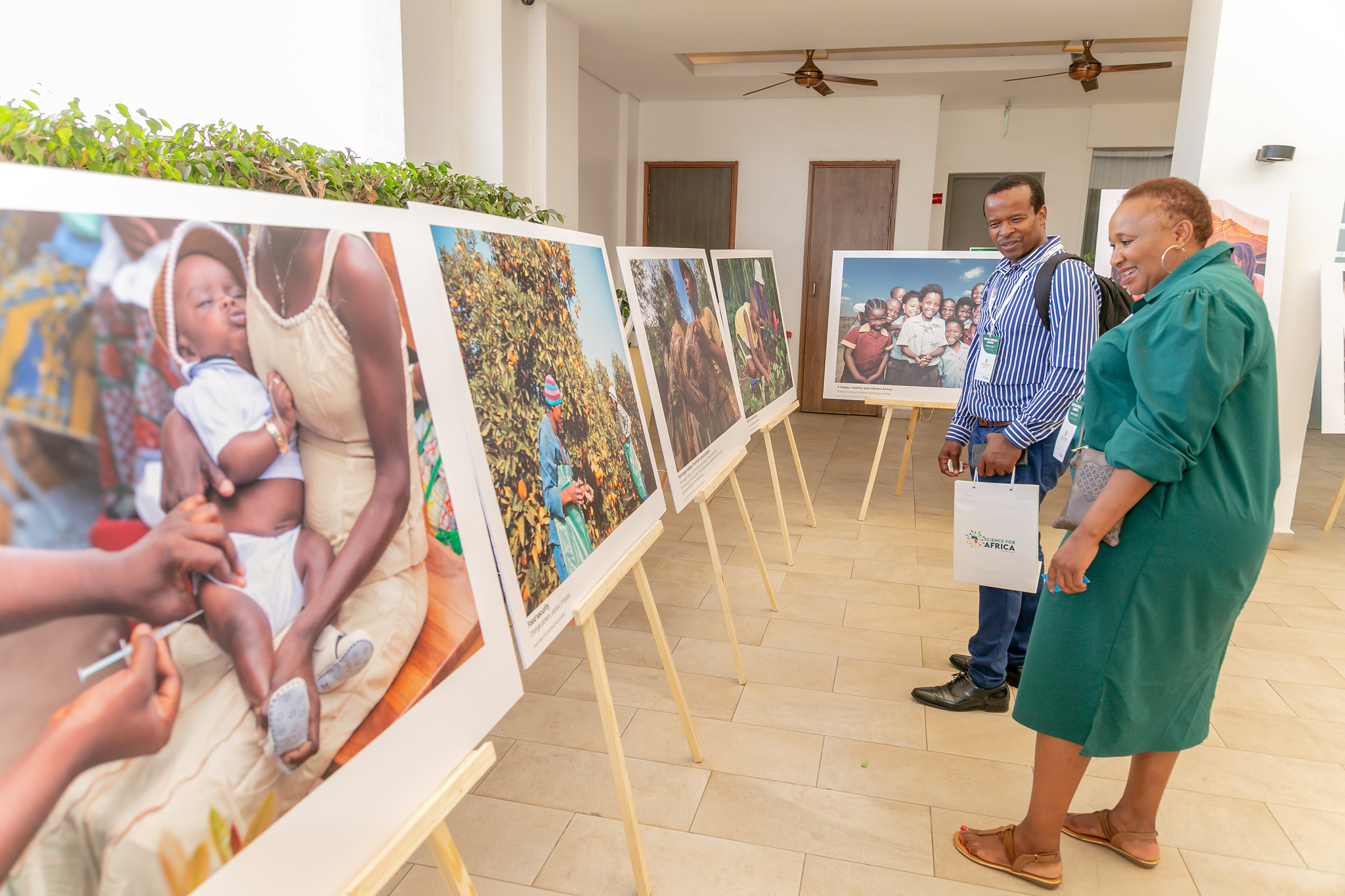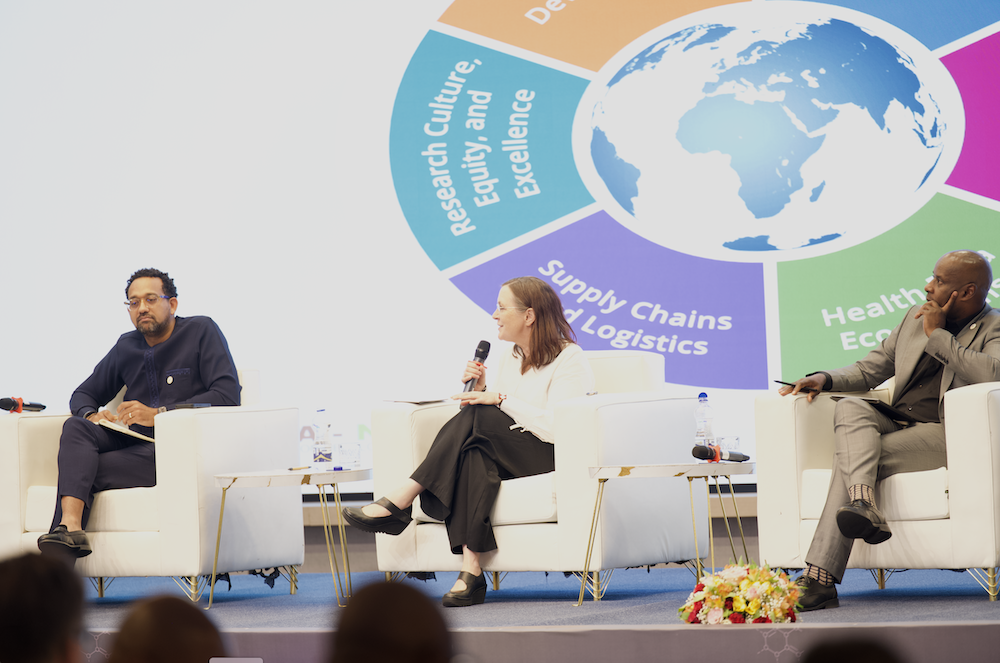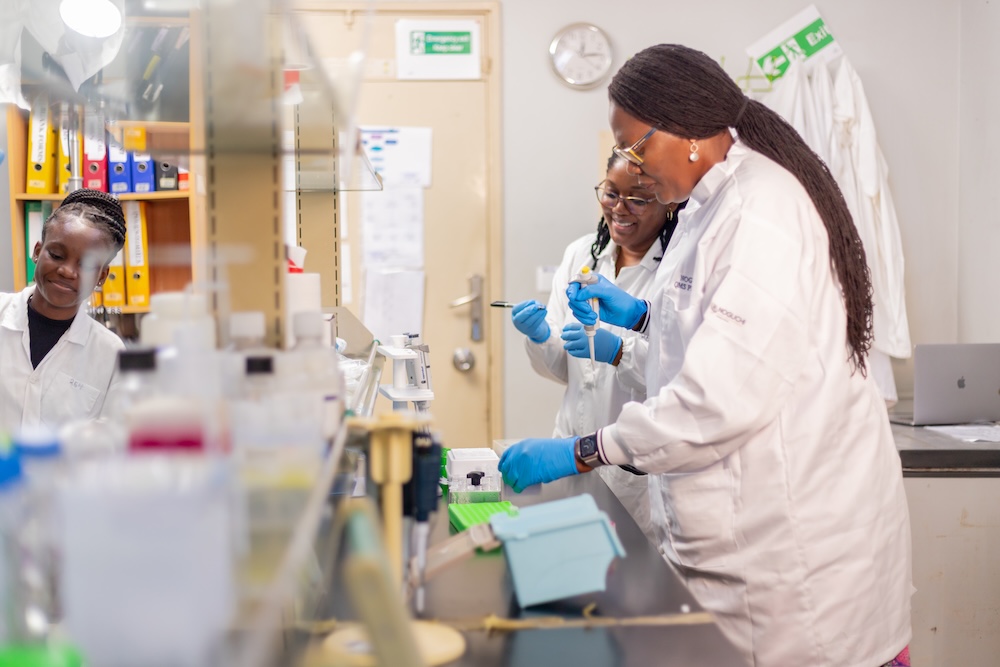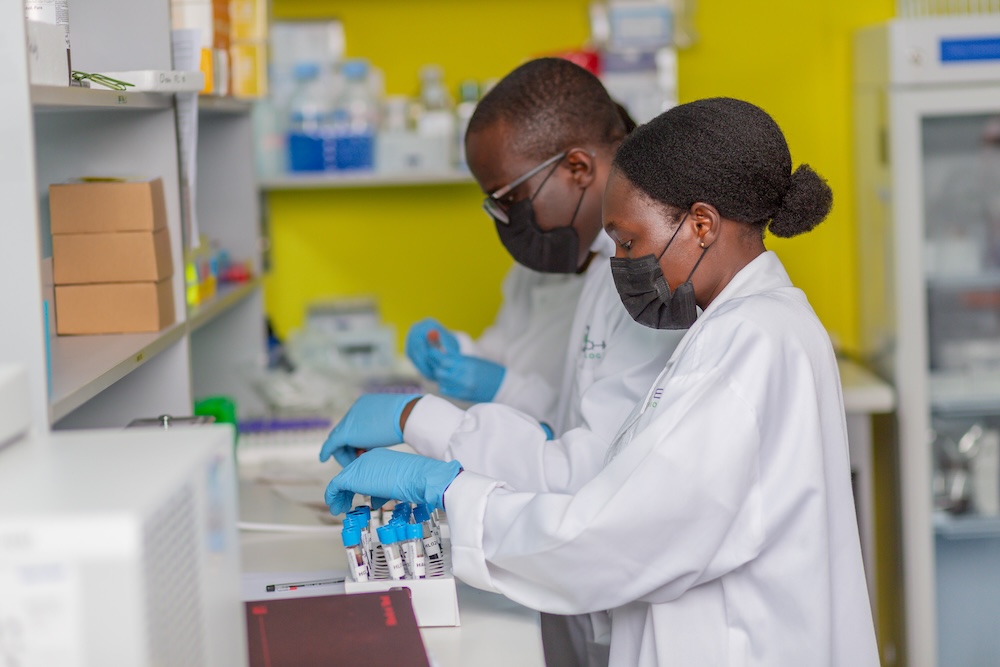
Media Centre
14 world class research leaders in Africa funded to drive locally relevant health research
Thursday, March 30, 2023

30 March 2023, NAIROBI, KENYA — The Science for Africa Foundation (SFA Foundation) is announcing 14 African senior scientists who have been awarded funding from the second phase of a multimillion-dollar programme driving locally-relevant data through world class research to accelerate Africa’s economic and development. DELTAS Africa supports researchers in addressing Africa’s most pressing health, climate and agriculture challenges. This is through improving the research environment, funding and training scientists and fostering equitable collaborations and societal engagement of researchers.
The 14 will be funded through the second phase of the Developing Excellence in Leadership, Training, and Science in Africa (DELTAS Africa) programme which has been enabled by $70 m support from Wellcome and the UK Foreign, Commonwealth & Development Office (FCDO). The 14 lead consortia in nine African countries — Côte d'Ivoire (1), Ethiopia (1), Ghana (1), Kenya (3), Mali (1), Senegal (1), South Africa (4), Tunisia (1) and Zimbabwe (1) — with partnerships across the globe as below:
Science Area: One health
Côte d'Ivoire
Research Excellence for African Challenges in Health (Afrique One-REACH)
Bassirou Bonfoh is the Director of Afrique One-REACH based at the Centre Suisse de Recherches Scientifiques en Côte d’Ivoire (CSRS), funded to use existing animal, human and environmental data for modelling to inform public health and to reinforce the online One Health curricula in schools of public health, veterinary science, wildlife, ecology, social anthropology and economics.
Science area: non communicable diseases (NCDs)
Ethiopia
Research and Excellence in African Capacity to Control and Treat Cancer (REACCT-CAN)
Adamu Addissie, an associate professor at Addis Ababa University’s College of Health Sciences, leads REACCT-CAN, which seeks to strengthen African institutions and networks in cancer research to generate collaborative Africa-led, African-relevant multidisciplinary evidence in oncology and cancer sciences for Africa.
Kenya
African Leadership for Measuring Brain Health in Children and Adolescents (ALMA)
Led by Amina Abubakar, Professor and Director for the Institute for Human Development at the Aga Khan University in Kenya, and Kirsty Donald, Professor in Paediatric Neurology at the University of Cape Town in South Africa, ALMA will explore mechanisms of brain development, measurement of brain function and behaviour, and interventions to promote child development.
Zimbabwe
African Mental Health Research Initiative (AMARI-II)
Dixon Chibanda, Professor of Psychiatry & Global Mental Health based in Zimbabwe, leads AMARI-II which seeks to address research questions/interventions that reduce the treatment gap for mental health disorders. AMARI’s cross-cutting themes include youth, gender, ethics, multi-morbidity, suicidal behaviour, COVID19, complex interventions, mental health systems, public engagement, validity and reliability of instruments for assessing mental health needs and outcomes, social determinants of mental health, and the effects of COVID-19 and other diseases on mental health. It will emphasise support of early career mental health researchers.
Science area: genomics and infectious disease
Ghana
West African Centre for Cell Biology of Infectious Pathogens (WACCBIP DELTAS II)
Gordon Akanzuwine Awandare, Pro Vice-Chancellor for Academic and Student Affairs at the University of Ghana, is director of WACCBIP, which contributes to SDG3 of ensuring and promoting health, which, through high quality training and cutting-edge research, will examine the basic mechanisms of infectious diseases (IDs) and non-communicable diseases (NCDs).
Mali
Developing Excellence in Leadership and Genetic Training for Malaria Elimination in sub-Saharan Africa (DELGEME Plus)
Abdoulaye Djimdé, Associate professor of Microbiology and Immunology, is Director of DELGEME Plus, which will apply genomics, epidemiology and informatics to understand the dynamics of transmission and the mechanisms and response to chemotherapeutic interventions focusing on malaria, TB and HIV/AIDS, and bacterial infections in animal health and production.
Science area: multi disease
Kenya
Consortium for Advanced Research Training in Africa 2021-2025 (CARTA2025)
Led by Catherine Kyobutungi, the Executive Director of the African Population and Health Research Center in Kenya, and Sharon Fonn, Professor in the School of Public Health at the University of the Witwatersrand in South Africa, CARTA expands research hubs that will address the complexity of health issues, including the social, environmental, economic and political determinants of health and health systems with a multidisciplinary perspective.
Initiative to Develop African Research Leaders (IDeAL)
Sam Kinyanjui, Head of training at the KEMRI-Wellcome Trust Research Programme in Kenya, leads IDeAL, which is investigating causes of childhood and adult morbidity and mortality in Africa. The multi-disciplinary, multi-disease consortium focuses on exploitation of the data generated by its consortium partners over time.
Science area: infectious disease
Senegal
Malaria Research and Capacity Development consortium in West and Central Africa (MARCAD Plus)
Oumar Gaye, Professor of Parasitology at the Université Cheikh Anta Diop, is the Director of MARCAD Plus, which will focus on three complementary approaches for malaria control: chemoprevention, vector control and surveillance, with special attention to potential synergies for neglected tropical disease control within the context of climate change and the Covid-19 pandemic, as they impact national control programmes.
South Africa
Sub-Saharan African Network for TB/HIV Research Excellence (SANTHE)
Thumbi Ndung’u, Director for Basic and Translational Science at the Africa Health Research Institute, is the Programme Director for SANTHE, a multidisciplinary consortium of African-led research and capacity strengthening, leading locally relevant discovery and policy-impacting science in Africa and globally. Initiated in 2015, SANTHE focuses on the challenges linked to HIV and TB, associated morbidities and emerging pathogens including SARS-CoV-2.
Tunisia
African Leishmaniases Consortium (ALC)
Ikram Guizani, research leader at the Institut Pasteur de Tunis in Tunisia, is leading the ALC which will translate advances in the sciences, including genomics, to support diagnosis, patient management and vector control, and to engage strategic research and think tanks to accelerate use of evidence to contribute policy for control and elimination of leishmaniases.
Science area: climate and social sciences and humanities
South Africa
Cascading Climate and Health Risks in Cities (CASCADE)
The South Africa National Research Chair on Climate Change and director of the Climate System Analysis Group (CSAG) at the University of Cape Town Bruce Hewitson will lead efforts to study Africa’s response to urban climate and health risks through innovative research across natural and social sciences. This will build rich inter-disciplinary evidence, transdisciplinary research engagement that acknowledges the complexity of urban health challenges, and facilitate intra- and extra-disciplinary learning through trusting, sustained relationships across the science/policy interface.
Critical Zones Africa South & East (CzASE)
Lesley Green, Professor of Anthropology and Director of the Environmental Humanities South at the University of Cape Town and her consortium for CzASE will study the conditions of habitability in the critical zone (CZ) -- six sites along Africa’s Eastern edge -- to propose governance strategies that partner with ecological processes and communities to avert climate catastrophes and strengthen African approaches to environmentalism in global climate negotiations. The studies will account for cascading societal challenges and risks arising from changes in the CZ and propose remediations.
Science area: statistics
South Africa
Sub-Saharan Africa Consortium for Advanced Biostatistics (SSACAB)
Tobias Chirwa, Associate Professor and Head of the University of Witwatersrand School of Public Health, is the Director for the SSACAB, which will build biostatistical research excellence in Sub-Saharan Africa through policy development to improve population health. SSACAB-II will contribute relevant policy advice in communicable and noncommunicable disease, such as HIV, TB, malaria and COVID-19, and mental health and Maternal, Neonatal and Child Health.



